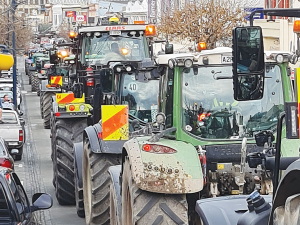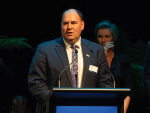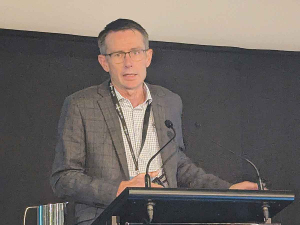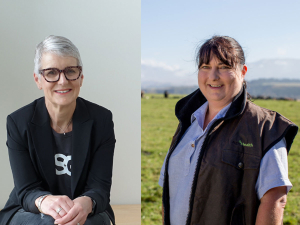That's the claim of agricultural consultant Steven Cranston, following a recent meeting of pan sector voices with Beef+Lamb NZ chair Andrew Morrison, DairyNZ chair Jim van der Poel and Federated Farmers president Andrew Hoggard.
Cranston says one of the main concerns raised at the meeting, organised by North Otago farmer Jane Smith and held in Wellington last month, was the lack of a coherent strategy to get the methane emissions reduction target reduced (currently 24 to 47% by 2050).
"The emissions targets were set back in 2015 and since then no groundwork has yet been put in place to get the targets changed," he told Rural News. "The sector bodies are asking Government to measure agriculture by its warming effect, yet it has not even produced a warming model itself yet."
Cranston says the farming industry has been lobbying for the use of GWP* since 2018 - but with no success.
"Beef + Lamb produced a 'carbon neutrality' report in 2020, but did not use GWP*. That's a major disconnect between what the industry bodies are asking for and what they are doing," he claims. "We are told to trust them and that work is going on behind the scenes, but that is clearly not the case."
Cranston says there was acknowledgement from the farm body leaders that the general public have a misconception of the impact agriculture has on climate.
"But there is in no media strategy in place to correct public understanding or lack of context provided in the media," he adds.
Cranston says the farming leaders highlighted the progress they made in improving the way farmers will be taxed on emissions.
"But our group remains concerned that without addressing the emission targets as well, it will end in a bad result for farmers."
Cranston says his group emphasised to the farming bodies that the timing to get the correct information out and set new emission reduction targets that are directly related to agriculture's warming effect is critical.
"We are currently in the later stages of developing a pricing mechanism for farmers that may not be aligned to our own intended targets," he adds. "There are targets set for farmers to 'know your numbers' which everyone agrees are the wrong numbers, the entire process is a shambles."
Cranston says it is vital that Overseer is upgraded to reflect warming effect.
"However, none of these changes can be made until we send a clear signal," he told Rural News.
"At the industry level, dual reporting of both warming effect and carbon equivalents would provide the information the Government needs and help draw attention to the discrepancies between the two accounting practices. But the pricing mechanism and farm-level reporting should be based on climate impact. Farmers have a right to know this information."
He claims that the farming industry leaders hold the position that emissions targets will not affect how pricing mechanisms work.
"They all agree that all emissions reductions, below the point of zero warming, should be incentivised," Cranston adds. "However, there was no explanation how this incentive pricing will be built into HWEN if the pricing mechanism dows not account for warming."
Cranston says the group presented a vision statement to the farming leaders for agreement calling for agriculture to set a new target of climate neutrality.
"The objective was for it to be a catalyst to help inform the public of agriculture's true warning impact and start building pressure on the Government to review the targets," he told Rural News. "However, while this was initially agreed at the meeting, all three bodies rejected it before it went to print."
Cranston says the entire direction of emissions policy is now hinging on whether advocacy leaders will take a firm stand against the reduction targets.
"The IPCC has just released the six assessment report, which backs the use of GWP* being used for agriculture and that warning related targets are more appropriate," he adds. "Farm industry bodies now have a rock-solid case to call for an overhaul of the emissions targets - but there is no indication by them that they are yet ready to do this."
Not Doing Their Job
Steven Cranston says farmers are asking why they don't see industry body leaders openly challenging bad government policy.
He claims the current farming leadership don't see this as their role.
"The expectation is that farmers need to take the tougher positions and allow the industry bodies to 'play to their strengths', which is keeping a close relationship with Government," he claims. "It should not be up to full time farmers to call out the Government on bad policy.
"The idea that farming industry leaders expect farmers to ask the tough questions, while they remain quietly in the background, is appalling."
Cranston reckons if farm body leaders spent as much energy on changing bad policy as they do on finding excuses not to, "the industry would be in far better shape".



















